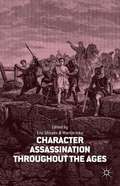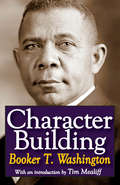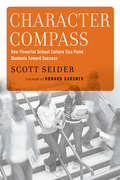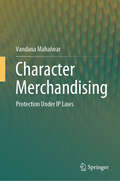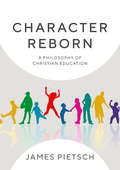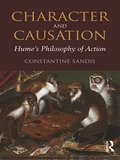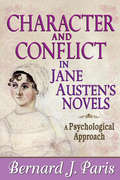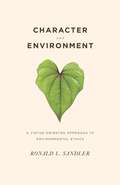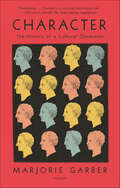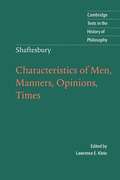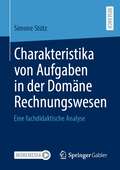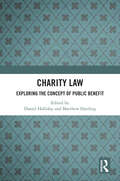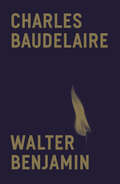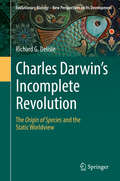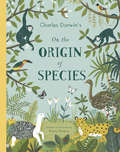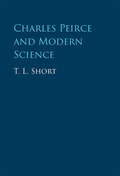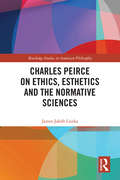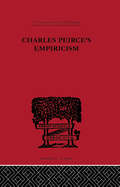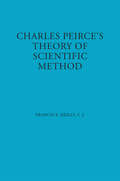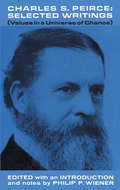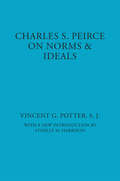- Table View
- List View
Character As Moral Fiction
by Mark AlfanoEveryone wants to be virtuous, but recent psychological investigations suggest that this may not be possible. Mark Alfano challenges this theory and asks, not whether character is empirically adequate, but what characters human beings could have and develop. Although psychology suggests that most people do not have robust character traits such as courage, honesty and open-mindedness, Alfano argues that we have reason to attribute these virtues to people because such attributions function as self-fulfilling prophecies - children become more studious if they are told that they are hard-working and adults become more generous if they are told that they are generous. He argues that we should think of virtue and character as social constructs: there is no such thing as virtue without social reinforcement. His original and provocative book will interest a wide range of readers in contemporary ethics, epistemology, moral psychology and empirically informed philosophy.
Character Assassination throughout the Ages
by Martijn Icks Eric ShiraevUsing a variety of cases from history and today's life, the book examines character attackers targeting the private lives, behavior, values, and identity of their victims. Numerous historical examples show that character assassination has always been a very effective weapon to win political battles or settle personal scores.
Character Building
by Tim MealiffBooker T. Washington has been regarded as the leading figure in African American life, and as the man who brought his people from slavery to unfettered economic, political, and social involvement in the American mainstream. He has also been strongly criticized for advancing the cause of racial accommodation when the political agenda dictated the development of an independent black standpoint in all areas of the industrial structure. This agenda went far beyond educational reform and agrarian participation.Character Building first appeared in 1902. While enormous changes have occurred in all phases of African American rights and responsibilities, Booker T. Washington's broad outlines on building moral character have remained intact. Washington's book can be viewed as a Dale Carnegie volume on How to Win Friends and Influence People black and white as noted by the very title of the chapters: "Helping Others," "Influencing by Example," "Education that Educates," "The Gospel of Service," etc.For those in search of the ideological roots of black life in post-slavery times, this text will be a reminder of where the American nation has come from and, arguably, where it is going.
Character Compass: How Powerful School Culture Can Point Students Toward Success
by Howard Gardner Scott SeiderIn Character Compass, Scott Seider offers portraits of three high-performing urban schools in Boston, Massachusetts that have made character development central to their mission of supporting student success, yet define character in three very different ways. One school focuses on students' moral character development, another emphasizes civic character development, and the third prioritizes performance character development. Drawing on surveys, interviews, field notes, and student achievement data, Character Compass highlights the unique effects of these distinct approaches to character development as well as the implications for parents, educators, and policymakers committed to fostering powerful school culture in their own school communities.
Character Compass: How Powerful School Culture Can Point Students Toward Success
by Scott Seider2013 American Educational Research Association's (AERA) Moral Development and Education Outstanding Book Award In Character Compass, Scott Seider offers portraits of three high-performing urban schools in Boston, Massachusetts that have made character development central to their mission of supporting student success, yet define character in three very different ways. One school focuses on students&’ moral character development, another emphasizes civic character development, and the third prioritizes performance character development. Drawing on surveys, interviews, field notes, and student achievement data, Character Compass highlights the unique effects of these distinct approaches to character development as well as the implications for parents, educators, and policymakers committed to fostering powerful school culture in their own school communities.
Character Merchandising: Protection Under IP Laws
by Vandana MahalwarThis book addresses the key issues, challenges and implications arising out of unauthorised acts of character merchandising. It offers deep insights into the philosophical justifications for the protection of persona. The book examines what qualifies as a character and its legal rights, namely property rights, personality rights and publicity rights. In the absence of any explicit statutory protection of characters, this work provides new insights into how intellectual property laws can be used to prevent unauthorized character merchandising. It critically evaluates various tests introduced by courts to determine the copyrightability of characters. It also analyses the dicta of the different courts justifying the effective protection of the rights of publicity. Since there is no uniform standard for the recognition and protection of image rights, this book presents a global perspective and developments on the subject with the help of judicial decisions. Drawing on the diverse judicial treatments, it explores whether an exclusive legal approach is required to address the concerns that emerge from unauthorised character merchandising. The book is of immense interest for researchers, academicians, policy makers and practitioners who work in this area. For researchers and academicians, the book offers new insights on how IP laws can be used to prevent unauthorized exploitation of persona. For practitioners, it provides an effective and more consistent approach to the interpretation of international intellectual property instruments. For policymakers, the objectives of protecting the legal rights of characters, is of specific interest. The book will further be of interest to governmental organizations and NGOs who want to advance their lawful merchandising agendas.
Character Reborn: A Philosophy of Christian Education
by James PietschMore than one million students in Australia attend schools founded by churches and other Christian organisations.What is it that sets these schools apart?More importantly, what is it that should set these schools apart?In Character Reborn, James Pietsch offers a fresh examination of the unique capacities and opportunities of Christian schools in Australia today.More than ever before, Christian schools are a significant point of contact between Christian communities and those with little or no understanding of the Christian worldview. Dr Pietsch challenges Christian educators to consider how they might maximise their opportunities to share the good news of Jesus with this wider community that is drawn to Christian schooling. To this end, he sets out an approach to education that focuses on learning character, whereby students in the Christian school context experience and practise the values of the kingdom of God – grace, compassion, kindness, and humility – as integral to their development, whatever their religious or cultural background.This book presents an inspiring blueprint for building up today’s students as people of Christian character – preparing them for the challenges of the current age and giving them insight into the age to come.
Character and Causation: Hume’s Philosophy of Action
by Constantine SandisIn the first ever book-length treatment of David Hume’s philosophy of action, Constantine Sandis brings together seemingly disparate aspects of Hume’s work to present an understanding of human action that is much richer than previously assumed. Sandis showcases Hume’s interconnected views on action and its causes by situating them within a wider vision of our human understanding of personal identity, causation, freedom, historical explanation, and morality. In so doing, he also relates key aspects of the emerging picture to contemporary concerns within the philosophy of action and moral psychology, including debates between Humeans and anti-Humeans about both 'motivating' and 'normative' reasons. Character and Causation takes the form of a series of essays which collectively argue that Hume’s overall project proceeds by way of a soft conceptual revisionism that emerges from his Copy Principle. This involves re-calibrating our philosophical ideas of all that agency involves to fit a scheme that more readily matches the range of impressions that human beings actually have. On such a reading, once we rid ourselves of a certain kind of metaphysical ambition we are left with a perfectly adequate account of how it is that people can act in character, freely, and for good reasons. The resulting picture is one that both unifies Hume's practical and theoretical philosophy and radically transforms contemporary philosophy of action for the better.
Character and Conflict in Jane Austen's Novels: A Psychological Approach
by Bernard J. ParisIn Character and Conflict in Jane Austen's Novels , Bernard J. Paris offers an analysis of the protagonists in four of Jane Austen's most popular novels. His analysis reveals them to be brilliant mimetic creations who often break free of the formal and thematic limitations placed upon them by Austen. Paris traces the powerful tensions between form, theme, and mimesis in Mansfield Park , Emma , Pride and Prejudice , and Persuasion . Paris uses Northrop Frye's theory of comic forms to analyse and describe the formal structure of the novels, and Karen Horney's psychological theories to explore the personalities and inner conflicts of the main characters. The concluding chapter turns from the characters to their creator, employing the Horneyan categories of self-effacing, detached, and expansive personality types to interpret Jane Austen's own personality. Readers of Jane Austen will find much that is new and challenging in this study. It is one of the few books to recognise and pay tribute to Jane Austen's genius in characterisation. Anyone who reads this book will come away with a new understanding of Austen's heroines as imagined human beings and also with a deeper feeling for the troubled humanity of the author herself.
Character and Environment: A Virtue-Oriented Approach to Environmental Ethics
by Ronald SandlerVirtue ethics is now widely recognized as an alternative to Kantian and consequentialist ethical theories. However, moral philosophers have been slow to bring virtue ethics to bear on topics in applied ethics. Moreover, environmental virtue ethics is an underdeveloped area of environmental ethics. Although environmental ethicists often employ virtue-oriented evaluation (such as respect, care, and love for nature) and appeal to role models (such as Henry Thoreau, Aldo Leopold, and Rachel Carson) for guidance, environmental ethics has not been well informed by contemporary work on virtue ethics. With Character and Environment, Ronald Sandler remedies each of these deficiencies by bringing together contemporary work on virtue ethics with contemporary work on environmental ethics. He demonstrates the many ways that any ethic of character can and should be informed by environmental considerations. He also develops a pluralistic virtue-oriented environmental ethic that accommodates the richness and complexity of our relationship with the natural environment and provides effective and nuanced guidance on environmental issues. These projects have implications not only for environmental ethics and virtue ethics but also for moral philosophy more broadly. Ethical theories must be assessed on their theoretical and practical adequacy with respect to all aspects of the human ethical situation: personal, interpersonal, and environmental. To the extent that virtue-oriented ethical theory in general, and Sandler's version of it in particular, provides a superior environmental ethic to other ethical theories, it is to be preferred not just as an environmental ethic but also as an ethical theory. Character and Environment will engage any reader with an interest in environmental ethics, virtue ethics, or moral philosophy.
Character: The History of a Cultural Obsession
by Marjorie Garber“In her wide-ranging cultural history of the term [‘character’], Garber has unearthed fascinating material and is a convivial, stimulating critic.” —Michael Saler, The Times Literary SupplementSince at least Aristotle’s time, philosophers, theologians, artists, and scientists have pondered the enigma of human character. Whether defined as a moral idea, a literary persona, or a scientifically observable type, character has become omnipresent in discussions of politics, ethics, gender, morality, and the psyche. In this “magisterial book,” Marjorie Garber examines the evolution and influence of this pervasive concept.Is there a connection between “character” in the moral sense and the “character” of a novel or a play? Can character be “formed” or taught in schools, in scouting, in the home? From Plutarch to John Stuart Mill, from Shakespeare to Darwin, from Theophrastus to Freud, from nineteenth-century phrenology to twenty-first-century brain scans, the search for the sources and components of human character still preoccupies us.With her distinctive verve, humor, and erudition, Marjorie Garber explores the stakes of these conflations, confusions, and heritages, from ancient Greece to the present day.
Characteristics of Men, Manners, Opinions, Times
by Lord Shaftesbury Lawrence E. KleinShaftesbury's Characteristics of Men, Manners, Opinions, Times was published in 1711. It ranges widely over ethics, aesthetics, religion, the arts (painting, literature, architecture, gardening), and ancient and modern history, and aims at nothing less than a new ideal of the gentleman. Together with Locke's Essay Concerning Human Understanding and Addison and Steele's Spectator, it is a text of fundamental importance for understanding the thought and culture of Enlightenment Europe. This volume presents a new edition of the text together with an introduction, explanatory notes and a guide to further reading.
Characterizing the Robustness of Science: After the Practice Turn in Philosophy of Science (Boston Studies in the Philosophy and History of Science #292)
by William Wimsatt Emiliano Trizio Léna Soler Thomas NicklesMature sciences have been long been characterized in terms of the "successfulness", "reliability" or "trustworthiness" of their theoretical, experimental or technical accomplishments. Today many philosophers of science talk of "robustness", often without specifying in a precise way the meaning of this term. This lack of clarity is the cause of frequent misunderstandings, since all these notions, and that of robustness in particular, are connected to fundamental issues, which concern nothing less than the very nature of science and its specificity with respect to other human practices, the nature of rationality and of scientific progress; and science's claim to be a truth-conducive activity. This book offers for the first time a comprehensive analysis of the problem of robustness, and in general, that of the reliability of science, based on several detailed case studies and on philosophical essays inspired by the so-called practical turn in philosophy of science.
Charakteristika von Aufgaben in der Domäne Rechnungswesen: Eine fachdidaktische Analyse
by Simone StützDas vorliegende Buch beschäftigt sich mit den Charakteristika von Aufgaben in der Domäne Rechnungswesen aus einer fachdidaktischen Perspektive. Dazu wurde der aktuelle fachdidaktische Diskussionsstand aus der Fachdidaktik Rechnungswesen aufgearbeitet und auf Basis dessen ein umfassendes Kategoriensystem zur Analyse und Bewertung von Aufgaben aus dem Rechnungswesen entwickelt. Das Kategoriensystem kann des Weiteren genutzt werden, um neue Aufgaben für das Rechnungswesen zu entwickeln und bestehende Aufgaben zu optimieren. Darüber hinaus wurden 2.000 Rechnungswesenaufgaben aus 15 verschiedenen Schulbüchern von drei österreichischen Verlagen mithilfe des Kategoriensystems analysiert und bewertet. Damit kann der Wissensstand zu den Charakteristika von Aufgaben in der Domäne Rechnungswesen erheblich erweitert werden. Die Ergebnisse der umfassenden Auswertungen zeigen, dass bei den Aufgaben Verbesserungspotenzial besteht und die im Rahmen des Kategoriensystems formulierten Ansprüche an Aufgaben im Rechnungswesen derzeit nicht umfassend erfüllt werden. Darüber hinaus wird festgestellt, dass im derzeitigen Rechnungswesenunterricht sowohl eine Änderung der Aufgabenkultur als auch curriculare Änderungen und Weiterentwicklungen notwendig sind.
Charity Law: Exploring the Concept of Public Benefit
by Daniel Halliday and Matthew HardingThis book investigates and critically evaluates the concept of public benefit within charity law in the common law world. In the course of the study the book: provides a rich account of how the concept of public benefit has developed over time in charity law jurisprudence; deepens understanding of the aspects of public benefit that remain poorly understood even today; and suggests ways in which public benefit jurisprudence might develop in an orderly and principled way so as to better address some of the core concerns of charity law and the public policy objectives that lie behind it. The book includes contributions from world leading charity law experts and jurists. Each chapter reflects on a key aspect of public benefit jurisprudence in charity law. The topics have been chosen carefully to ensure coverage of most if not all of the large unresolved questions relating to public benefit in the common law world. Each chapter is accompanied by a comment, written by an academic expert or leading practitioner. The comments complement the chapters by critically engaging with those chapters and by offering different and thought-provoking perspectives on the subject matter of the chapters. The book will be of interest to academics working in law, philosophy, economics, sociology and political science. It will also provide a valuable resource for legal practitioners and judges, government officials, especially charity regulators, and in the not-for-profit sector itself.
Charles Baudelaire: A Lyric Poet in the Era of High Capitalism
by Walter BenjaminA classic account of late nineteenth-century Paris and a study of Baudelaire's life and workWalter Benjamin, one of the foremost cultural commentators and theorists of this century, is perhaps best known for his analyses of the work of art in the modern age and the philosophy of history.Yet it was through his study of the social and cultural history of the late nineteenth-century Paris, examined particularly in relation to the figure of the great Parisian lyric poet Charles Baudelaire, that Benjamin tested and enriched some of his core concepts and themes. Contained within these pages are, amongst other insights, his notion of the flaneur, his theory of memory and remembrance, his assessment of the utopian Fourier and his reading of the modernist movement.
Charles Darwin's Incomplete Revolution: The Origin of Species and the Static Worldview (Evolutionary Biology – New Perspectives on Its Development #1)
by Richard G. DelisleThis book offers a thorough reanalysis of Charles Darwin's Origin of Species, which for many people represents the work that alone gave rise to evolutionism. Of course, scholars today know better than that. Yet, few resist the temptation of turning to the Origin in order to support it or reject it in light of their own work. Apparently, Darwin fills the mythical role of a founding figure that must either be invoked or repudiated. The book is an invitation to move beyond what is currently expected of Darwin's magnum opus. Once the rhetorical varnish of Darwin's discourses is removed, one discovers a work of remarkably indecisive conclusions. The book comprises two main theses: (1) The Origin of Species never remotely achieved the theoretical unity to which it is often credited. Rather, Darwin was overwhelmed by a host of phenomena that could not fit into his narrow conceptual framework. (2) In the Origin of Species, Darwin failed at completing the full conversion to evolutionism. Carrying many ill-designed intellectual tools of the 17th and 18th centuries, Darwin merely promoted a special brand of evolutionism, one that prevented him from taking the decisive steps toward an open and modern evolutionism. It makes an interesting read for biologists, historians and philosophers alike.
Charles Darwin's On the Origin of Species
by Sabina RadevaA picture book adaptation of Charles Darwin's groundbreaking On the Origin of Species, lushly illustrated and told in accessible and engaging easy-to-understand text for young readers.On the Origin of Species revolutionized our understanding of the natural world. Now young readers can discover Charles Darwin's groundbreaking theory of evolution for themselves in this stunning picture-book adaptation that uses stylish illustrations and simple text to introduce how species form, develop, and change over time.
Charles Peirce and Modern Science
by T. L. ShortIn this book, T. L. Short places the notorious difficulties of Peirce's important writings in a more productive light, arguing that he wrote philosophy as a scientist, by framing conjectures intended to be refined or superseded in the inquiries they initiate. He argues also that Peirce held that the methods and metaphysics of modern science are amended as inquiry progresses, making metaphysics a branch of empirical knowledge. Additionally, Short shows that Peirce's scientific work expanded empiricism on empirical grounds, grounding his phenomenology and subverting the fact/value dichotomy, and that he understood statistical explanations in nineteenth-century science as reintroducing the idea of final causation, now made empirical. Those innovations underlie Peirce's late ideas of a normative science and of philosophy as a branch of science. Short's rich and original study shows us how to read Peirce's writings and why they are worth reading.
Charles Peirce on Ethics, Esthetics and the Normative Sciences (Routledge Studies in American Philosophy)
by James Jakób LiszkaThis book presents a comprehensive and systematic picture of Charles Peirce’s ethics and aesthetics, arguing that Peirce established a normative framework for the study of right conduct and good ends. It also connects Peirce’s normative thought to contemporary debates in ethical theory. Peirce sought to articulate the relation among logic as right thinking, ethics as good conduct and, in an unorthodox sense of aesthetics, the pursuit of ends that are fine and worthy. Each plays an important role in ethical life. Once aesthetics has determined what makes an end worthy and admirable, and ethics determines which are good and right to pursue, logical and scientific reasoning is employed to figure the most likely means to attain those ends. Ethics does the additional duty of ensuring that the means conform to ideals of conduct. In the process, Peirce develops an interesting theory of moral motivation, an account of moral reasoning, moral truth, and a picture of what constitutes a moral community. Charles Peirce on Ethics, Esthetics and the Normative Sciences will be of interest to scholars and students working on Peirce, American philosophy, and metaethics.
Charles Peirce on Ethics, Esthetics and the Normative Sciences (Routledge Studies in American Philosophy)
by James Jakób LiszkaThis book presents a comprehensive and systematic picture of Charles Peirce’s ethics and aesthetics, arguing that Peirce established a normative framework for the study of right conduct and good ends. It also connects Peirce’s normative thought to contemporary debates in ethical theory.Peirce sought to articulate the relation among logic as right thinking, ethics as good conduct and, in an unorthodox sense of aesthetics, the pursuit of ends that are fine and worthy. Each plays an important role in ethical life. Once aesthetics has determined what makes an end worthy and admirable, and ethics determines which are good and right to pursue, logical and scientific reasoning is employed to figure the most likely means to attain those ends. Ethics does the additional duty of ensuring that the means conform to ideals of conduct. In the process, Peirce develops an interesting theory of moral motivation, an account of moral reasoning, moral truth, and a picture of what constitutes a moral community.Charles Peirce on Ethics, Esthetics and the Normative Sciences will be of interest to scholars and students working on Peirce, American philosophy, and metaethics.
Charles Peirce's Empiricism (International Library of Philosophy)
by Justus BuchlerFirst published in 2000. Routledge is an imprint of Taylor & Francis, an informa company.
Charles Peirce's Theory of Scientific Method (American Philosophy)
by Francis E. Reilly S.J.This book is an attempt to understand a significant part of the complex thought of Charles Sanders Peirce, especially in those areas which interested him most: scientific method and related philosophical questions. It is organized primarily from Peirce's own writings, taking chronological settings into account where appropriate, and pointing out the close connections of several major themes in Peirce's work which show the rich diversity of his thought and its systematic unity. Following an introductory sketch of Peirce the thinking and writer is a study of the spirit and phases of scientific inquiry, and a consideration of its relevance to certain outstanding philosophical views which Peirce held. This double approach is necessary because his views on scientific method are interlaces with a profound and elaborate philosophy of the cosmos. Peirce's thought is unusually close-knit, and his difficulty as a writer lies in his inability to achieve a partial focus without bringing into view numerous connections and relations with the whole picture of reality. Peirce received some of the esteem he deserves when the publication of his Collected Papers began more than thirty-five years ago. Some reviewers and critics, however, have attempted to fit Peirce into their own molds in justification of a particular position; others have disinterestedly sought to present him in completely detached fashion. Here, the author has attempted to understand Peirce as Peirce intended himself to be understood, and has presented what he believes Perice's philosophy of scientific method to be. He singles out for praise Peirce's Greek insistence on the primacy of theoretical knowledge and his almost Teilhardian synthesis of evolutionary themes. Primarily philosophical, this volume analyzes Peirce's thought using a theory of knowledge and metaphysics rather than formal logic.
Charles S. Peirce, Selected Writings
by Charles S. Peirce Philip P. WienerScience, material, idealism, pragmaticism, history of scientific thought. With Buchler's book, best way to approach notoriously cryptic philosopher. Features 24 selections including "The Place of Our Age in the History of Civilization," "Questions Concerning Certain Faculties Claimed for Man," "Some Consequences of Four Incapacities," and "The Fixation of Belief."
Charles S. Peirce: On Norms and Ideals (American Philosophy #No. 6)
by Vincent G. PotterIn recent years, Charles Sanders Peirce has emerged, in the eyes of philosophers both in America and abroad, as one of America’s major philosophical thinkers. His work has forced us back to philosophical reflection about those basic issues that inevitably confront us as human beings, especially in an age of science. Peirce’s concern for experience, for what is actually encountered, means that his philosophy, even in its most technical aspects, forms a reflective commentary on actual life and on the world in which it is lived. In Charles S. Peirce: On Norms and Ideals, Potter argues that Peirce’s doctrine of the normative sciences is essential to his pragmatism. No part of Peirce’s philosophy is bolder than his attempt to establish esthetics, ethics, and logic as the three normative sciences and to argue for the priority of esthetics among the trio. Logic, Potter cites, is normative because it governs thought and aims at truth; ethics is normative because it analyzes the ends to which thought should be directed; esthetics is normative and fundamental because it considers what it means to be an end of something good in itself. This study shows that pierce took seriously the trinity of normative sciences and demonstrates that these categories apply both to the conduct of man and to the workings of the cosmos. Professor Potter combines sympathetic and informed exposition with straightforward criticism and he deals in a sensible manner with the gaps and inconsistencies in Peirce’s thought. His study shows that Peirce was above all a cosmological and ontological thinker, one who combined science both as a method and as result with a conception of reasonable actions to form a comprehensive theory of reality. Peirce’s pragmatism, although it has to do with "action and the achievement of results, is not a glorification of action but rather a theory of the dynamic nature of things in which the "ideal" dimension of reality – laws, nature of things, tendencies, and ends – has genuine power for directing the cosmic order, including man, toward reasonable goals.

